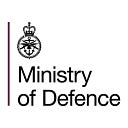
The Chief of the Defence Staff: the role explained
You may have seen the UK’s Chief of the Defence Staff (CDS) at a recent No10 coronavirus briefing, but what is the Chief of the Defence Staff and who’s currently in the role?
In the words of our current CDS, General Sir Nicholas Carter:
“A lot of the support the Armed Forces is providing is about planning capability and additional resilience to very hardworking organisations”
What is the CDS’s position?
He is the professional head of the UK Armed Forces and the most senior uniformed military adviser to the Secretary of State for Defence and the Prime Minister of the United Kingdom. He works alongside the Permanent Under Secretary, the ministry’s senior civil servant.
Who is the current CDS?
General Sir Nicholas Carter GCB CBE DSO ADC Gen, since June 2018.
He joined the Army, age 18, in 1977 and commissioned from the Royal Military Academy Sandhurst into The Royal Green Jackets, an infantry regiment.
He has served in Germany during the Cold War; Northern Ireland during the Troubles; Cyprus with the UN; lead battalions in Bosnia and Kosovo; and completed multiple tours in Iraq and Afghanistan.
What are their responsibilities?
- Leading defence (with the Perm Sec)
- setting strategy for defence, including the future development of the Armed Forces (subject to ministers’ direction, and together with Perm Sec)
- the conduct of current operations (as strategic commander)
- leading relationships with other countries’ Armed Forces.

Where is the CDS based?
The Ministry of Defence main building in Whitehall, where the main government departments are based.
More about the Ministry of Defence:
There almost 200,000 personnel in the UK Armed Forces, as of January 2020, not including MOD civil servants who work alongside personnel across the country and overseas.
The Ministry of Defence covers 8 broad tasks, overseen by the CDS:
- defence, security and resilience of the UK and its overseas territories
- nuclear deterrence and the defence nuclear enterprise
- contribute to improved understanding of the world through strategic intelligence and the global defence network
- influence through international defence engagement
- overseas defence activity
- promote UK prosperity and civil society
- direct defence
- strategic base and enabling functions
This includes Military Aid to Civil Authorities (MACA) for example flood relief and the support of the NHS during the Coronavirus pandemic.
General Carter has said:
“We’re turning our hands to new tasks, we’re committed in the support of others and we recognise that this is all part of a national enterprise.”

